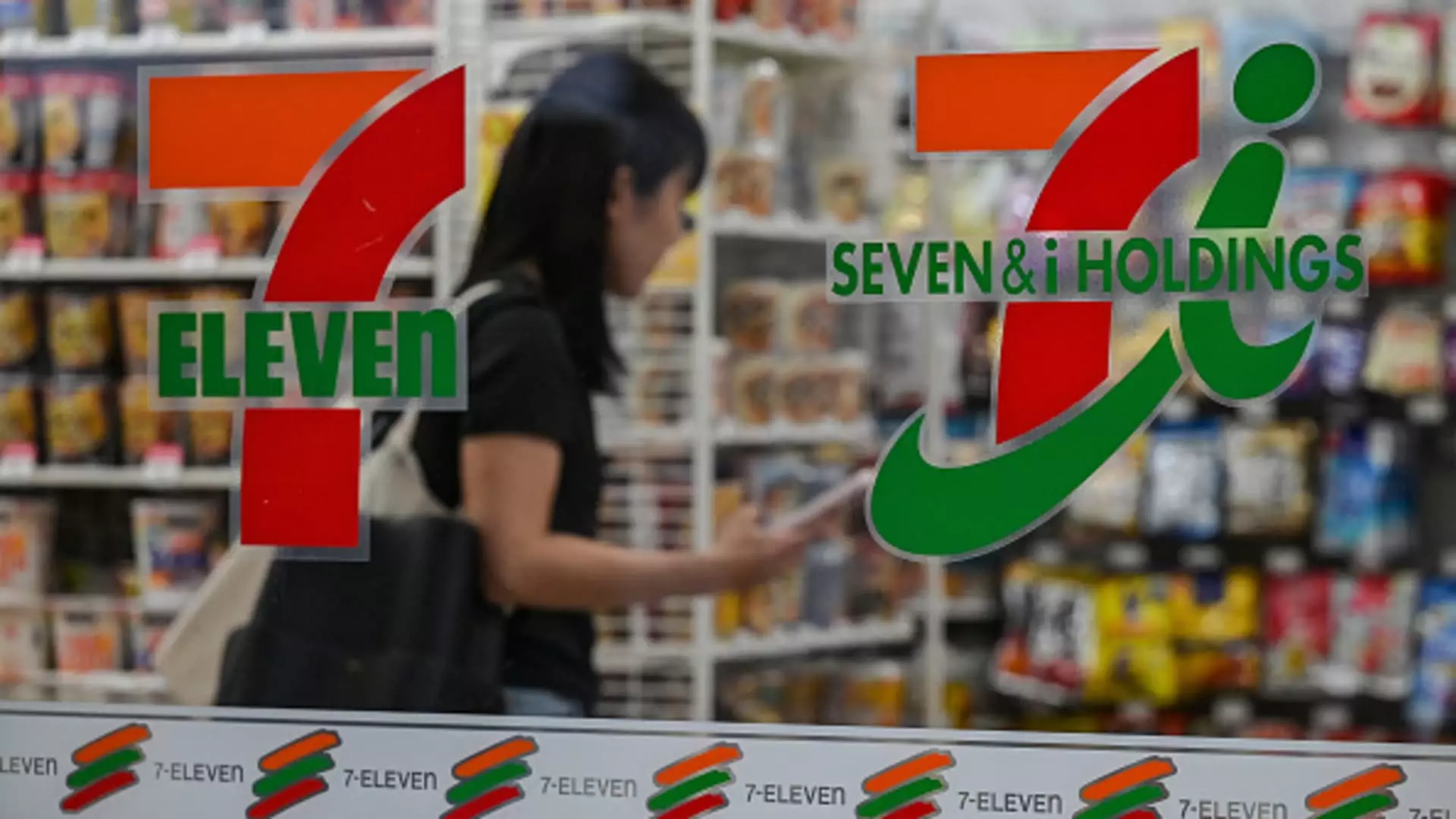Seven & i Holdings, renowned in Japan for its extensive network of convenience stores, is currently grappling with a significant downturn in its financial outlook. The company recently announced a drastic reduction in its profit forecast for the fiscal year ending February 2025, slashing expected net income from 293 billion yen to a striking 163 billion yen—representing a staggering 44.4% decrease. This substantial cut comes in light of their first-half operational results, which while achieving revenue of 6.04 trillion yen, fell disappointingly short in profitability. With reported net profits at just 52.24 billion yen, this raises concerns regarding the company’s operational efficiency and market strategy.
Consumers appear to be shifting towards a more cautious spending behavior, particularly in the context of overseas convenience store operations. This suggests an increasing hesitance amongst customers, which poses a threat not only to the company’s financial stability but also to its competitive positioning in the sector. The insight that foreign customers have adopted a “more prudent approach to consumption” underscores a broader trend in consumer sentiment that could necessitate a reevaluation of marketing strategies by the company.
In response to these alarming financial challenges, Seven & i Holdings is embarking on a restructuring initiative that seeks to streamline its operations by spinning off non-core segments into standalone subsidiaries. This decision signifies a broader realignment strategy that aims to consolidate their approach towards their more profitable divisions, which currently include the popular 7-Eleven brand.
Notably, the decision to separate the Ito-Yokado Online Supermarket, which incurred a 45.88 billion yen charge, reflects the company’s intent to refocus its business model towards segments that exhibit greater growth potential. The establishment of an intermediate holding company dedicated to supermarket food and specialty stores highlights the growing pressure from investors dissatisfied with the company’s diversified portfolio. As retail markets around the globe evolve, Seven & i’s pivot away from non-core operations could be seen as a necessary adaptation to remain relevant in a competitive landscape.
Another layer of complexity in the narrative surrounding Seven & i Holdings is the looming potential for a hostile takeover by Canada’s Alimentation Couche-Tard (ACT). Following an initial takeover bid that was deftly rejected by Seven & i as being unfavorable for shareholders, the revised offer—now reported to be approximately 20% higher at around $18.19 per share—could escalate into more aggressive tactics if tensions continue to rise.
This situation unveils the intricate dynamics at play in the Japanese market, where foreign investment faces regulatory scrutiny under Japan’s Foreign Exchange and Foreign Trade Act. The act mandates that any foreign entity intending to acquire a significant stake in a designated company must submit to national security reviews, adding an additional layer of scrutiny for ACT’s ambitions.
Market analysts suggest that while a hostile takeover may be possible, the structural complexities of the Japanese market could make such endeavors fraught with difficulties. Effective defenses—like “poison pills”—could serve to dilute any potential acquirer’s influence. However, should ACT’s offer escalate to a more enticing level, the potential for shareholder unrest could create pressure on Seven & i’s board to reconsider their stance, despite their current resistance.
Market Reactions and Future Considerations
The response to ACT’s interest has not gone unnoticed in the financial markets, with Seven & i’s stock experiencing a notable uptick of over 33% since the takeover discussions became public. This response signals a level of investor optimism surrounding the company’s prospects despite the turbulent short-term outlook characterized by profit declines and restructuring.
As the competitive landscape of the global retail market evolves, key players like Seven & i Holdings must navigate the dual challenges of internal restructuring while facing external pressures from potential acquirers. Analysts emphasize the importance of balancing immediate financial health with long-term strategic vision, noting that shifting consumer behaviors require a nuanced approach to business development.
The challenges and opportunities confronting Seven & i Holdings are emblematic of the broader trends affecting the retail sector in Japan and beyond. As they grapple with a significant restructuring, the path forward will depend heavily on adeptly managing market perceptions and operational realities while addressing the mixed signals emanating from global interest in their business model.

